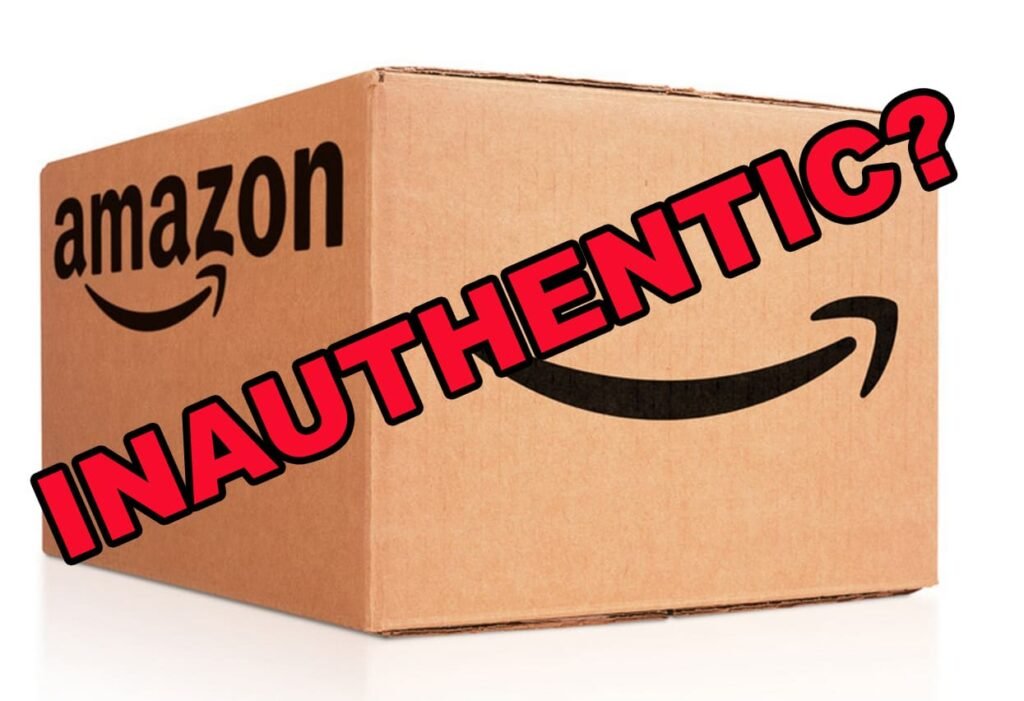Table of Contents
In navigating the vast realm of Amazon, a global electronic marketplace, sellers and buyers encounter a multitude of opportunities and challenges. Amidst this expanse, inauthentic listings emerge as a significant concern, potentially harboring counterfeit or damaged goods. Such listings not only jeopardize trust but also tarnish the reputation of sellers and the platform itself. Thus, comprehending Amazon’s stringent policy on inauthentic listings is paramount for sellers to ensure compliance and for buyers to make confident, informed purchasing choices. By upholding transparency and accountability, both parties contribute to fostering a thriving and trustworthy ecosystem on Amazon.
What Are Inauthentic Listings?

Inauthentic listings on Amazon pose significant risks to consumers, ranging from receiving substandard products to supporting unethical practices. It’s essential to scrutinize product descriptions, reviews, and seller ratings to discern genuine offerings from counterfeit ones. Additionally, reporting suspicious listings helps maintain the integrity of the marketplace and protects fellow shoppers. By staying informed and proactive, you play a crucial role in safeguarding the authenticity and trustworthiness of the Amazon shopping experience. Together, we can uphold quality standards and foster a transparent and reliable marketplace for all.
Why Are Inauthentic Listings an Issue?

Inauthentic listings address two or three issues for the two merchants and purchasers:
Loss of Trust: Inauthentic listings disintegrate trust among shippers and purchasers. Precisely when clients get things that don’t match their speculations or are not as depicted, it harms the excess of the merchant and the Amazon stage with everything considered.
Legal and Regulatory Issues: Selling fake or contorted things can actuate authentic repercussions for traders, including cases, fines, and record suspension or end by Amazon. It in addition excuses defended advancement praises and encroaches upon brand name and safeguarded development rules.
Negative Impact on Buyers: Purchasers who unintentionally buy inauthentic things could encounter confusion, cash related disaster, and anticipated chances in the event that the things don’t satisfy security administers or contain harming materials.
Also Read This: How to Sell on Amazon: A Step-by-Step Guide
Amazon’s Policy on Inauthentic Listings

Amazon has serious philosophies gotten up situated battle inauthentic listings and safeguard the validity of its business place. Key bits of Amazon’s policy include:
Prohibited Activities: Amazon hinders the proposition of fake things, unapproved pantomimes, and things that encroach upon approved progression open doors. Merchants should guarantee that their listings unequivocally address the things they are selling and that they have the legitimate right to sell those things.
Verification and Documentation: Merchants might should give documentation, for example, mentioning or support letters, to assert the legitimacy of their things. Inability to give satisfactory documentation could accomplish the getting free from listings or record suspension.
Consistence Essential: Amazon utilizes different procedures to perceive and take out inauthentic listings, including motorized frameworks, manual audits, and reports from clients and praises holders. Transporters saw as selling inauthentic things would have to oversee hurts going from introducing evacuation on account suspension or end.
Appeals Process: Vendors who recognize their listings were mistakenly hailed as inauthentic save the decision to pursue Amazon’s choice. The sales cycle licenses dealers to give extra data or affirmation to help the realness of their things.
Tips for Sellers to Keep away from Inauthentic Listings

To take the necessary steps not to experience Amazon’s policy on inauthentic listings, vendors ought to:
- Source things from supported wholesalers and makers.
- Remain mindful of accurate thing depictions and give clear, basic necessity pictures.
- Answer quickly to client requests and address any objections or concerns.
- Keep up with wary records of stock, deals, and support letters.
- Screen their listings dependably and expeditiously crash any thought inauthentic things.
Conclusion
Understanding Amazon’s policy on inauthentic listings is essential for both sellers and buyers to ensure a secure and trustworthy business community experience. By adhering to Amazon’s standards, sellers can safeguard their reputation and avoid penalties, while buyers can make informed purchasing decisions with confidence in the authenticity of the items they are buying.
Demystifying inauthentic listings fosters trust and integrity within the Amazon ecosystem, benefiting all stakeholders involved. Through transparency and adherence to policy, sellers can build long-lasting relationships with customers, while buyers can enjoy a seamless shopping experience knowing they are receiving genuine products. By working together to combat inauthenticity, we strengthen the foundation of trust that underpins the Amazon marketplace, fostering a thriving and sustainable online environment for all.



Leave a Reply